Related Research Articles

Yale University is a private Ivy League research university in New Haven, Connecticut. Founded in 1701, Yale is the third-oldest institution of higher education in the United States and one of the nine colonial colleges chartered before the American Revolution. It is among the most prestigious universities in the United States.
William Rose Benét was an American poet, writer, and editor. He was the older brother of Stephen Vincent Benét.

Yale College is the undergraduate college of Yale University. Founded in 1701, it is the original school of the university. Although other Yale schools were founded as early as 1810, all of Yale was officially known as Yale College until 1887, when its schools were confederated and the institution was renamed Yale University. It is ranked as one of the top colleges in the United States.

Timothy Dwight V was an American academic, educator, Congregational minister, and President of Yale University (1886–1898). During his years as the school's president, Yale's schools first organized as a university. His grandfather was Timothy Dwight IV, who served as President of Yale College ninety years before his grandson's tenure.

Wolf's Head Society is a senior society at Yale University in New Haven, Connecticut. The society is one of the reputed "Big Three" societies at Yale, along with Skull and Bones and Scroll and Key. Active undergraduate membership is elected annually with sixteen Yale University students, typically rising seniors. Honorary members are elected.
Book and Snake or The Society ofBook and Snake is a secret society for seniors at Yale University. It was established in 1863 and is the fourth-oldest secret society at Yale. It is considered one of the "Big Three'' of the societies at Yale, along with Skull and Bones and Wolf's Head.
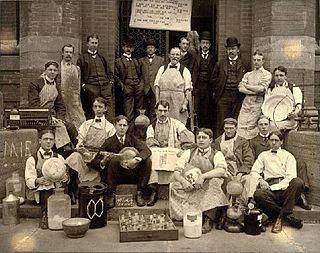
Sheffield Scientific School was founded in 1847 as a school of Yale College in New Haven, Connecticut, for instruction in science and engineering. Originally named the Yale Scientific School, it was renamed in 1861 in honor of Joseph E. Sheffield, a railroad executive. The school was incorporated in 1871. The Sheffield Scientific School helped establish the model for the transition of U.S. higher education from a classical model to one which incorporated both the sciences and the liberal arts. Following World War I, however, its curriculum gradually became completely integrated with Yale College. "The Sheff" ceased to function as a separate entity in 1956.

William Quincy Porter was an American composer and teacher of classical music.
Manuscript Society is a senior society at Yale University in New Haven, Connecticut. It is reputedly the arts and letters society at Yale.

The Yale Graduate School of Arts and Sciences is the graduate school of Yale University. Founded in 1847, it is the oldest graduate school in North America, and was the first North American graduate school to confer a Doctor of Philosophy (Ph.D.) degree.

The Yale School of Engineering & Applied Science is the engineering school of Yale University. When the first professor of civil engineering was hired in 1852, a Yale School of Engineering was established within the Yale Scientific School, and in 1932 the engineering faculty organized as a separate, constituent school of the university. The school currently offers undergraduate and graduate classes and degrees in electrical engineering, chemical engineering, computer science, applied physics, environmental engineering, biomedical engineering, and mechanical engineering and materials science.
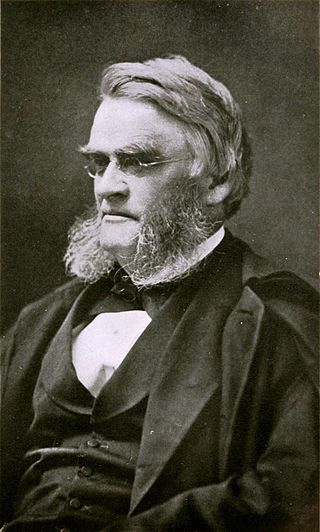
Thomas Anthony Thacher was an American classicist and college administrator.
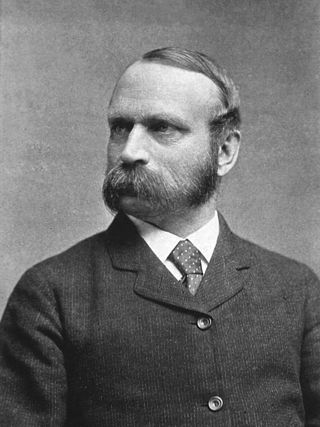
Charles Frederick Chandler was an American chemist, best known for his regulatory work in public health, sanitation, and consumer safety in New York City, as well as his work in chemical education—first at Union College and then, for the majority of his career, at Columbia University, where he taught in the Chemical Department, the College of Physicians and Surgeons, and served as the first Dean of Columbia University's School of Mines.

Arthur Howe was an American football player and coach, teacher, minister and university president. He played college football for Yale University from 1909 to 1911, was the quarterback of Yale's 1909 national championship team, and was a consensus first-team All-American in 1912. He was the head coach of the 1912 Yale football team. Howe was later ordained as a Presbyterian minister and taught at Eastern preparatory schools and at Dartmouth College. From 1930 to 1940, he was the president of Hampton University. He was posthumously inducted into the College Football Hall of Fame in 1973.
Harry A. Shulman was a professor at Yale Law School from 1930 to 1954, the Dean of Yale Law School from 1954–1955, and a prominent labor arbitrator.
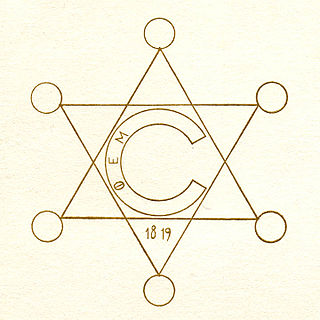
The Calliopean Society, also known as the Fraternity of Phi Epsilon Mu, is a literary and debating society at Yale College founded in 1819, disbanded in 1853, and revived in 1950. Its name refers to Calliope, chief of the muses and muse of epic poetry, daughter of Zeus and Mnemosyne (memory).
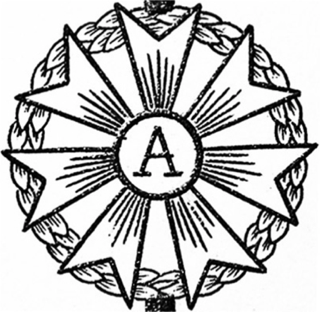
Established in 1910, the Aurelian Honor Society ("Aurelian") is the fifth oldest landed secret society at Yale University in New Haven, Connecticut. It is a member of the Ancient Eight, which also includes Skull and Bones, Scroll and Key, and Wolf's Head. In addition, Aurelian is part of a four-society "Consortium" with Manuscript Society, Book and Snake, and Berzelius.
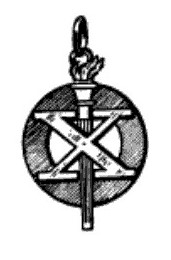
The Torch Honor Society, also known as Torch, is a student secret society at Yale College that was initially established in 1916 and reformed in 1995. Its members include former President George H. W. Bush and William F. Buckley Jr.
Rollin G. Osterweis was an American historian in the Department of History at Yale University for twenty eight years while also serving as the Yale Director of Debating and Public Speaking. Osterweis was the author of numerous books and articles focused on the history of the American South and on New Haven, Connecticut.

Cannon and Castle is a military honor society founded at Yale University in 1929. Elected members include cadets and midshipmen from all three Reserve Officer Training Corps branches, active-duty servicemembers, veterans and faculty of the Yale community.
References
- ↑ "Dr. Loomis Havemeyer Dead; On Yale Staff Over 50 Years". The New York Times . August 16, 1971. p. 30. Retrieved 5 July 2017.
- 1 2 3 4 Loomis Havemeyer papers. Manuscripts and Archives Repository, Yale University.
- ↑ "Yale Medal Recipients and Bios". Yale Alumni Association. Association of Yale Alumni. Retrieved 8 July 2017.
- ↑ "Havemeyer, Loomis 1886-1971". WorldCat. Retrieved 8 July 2017.